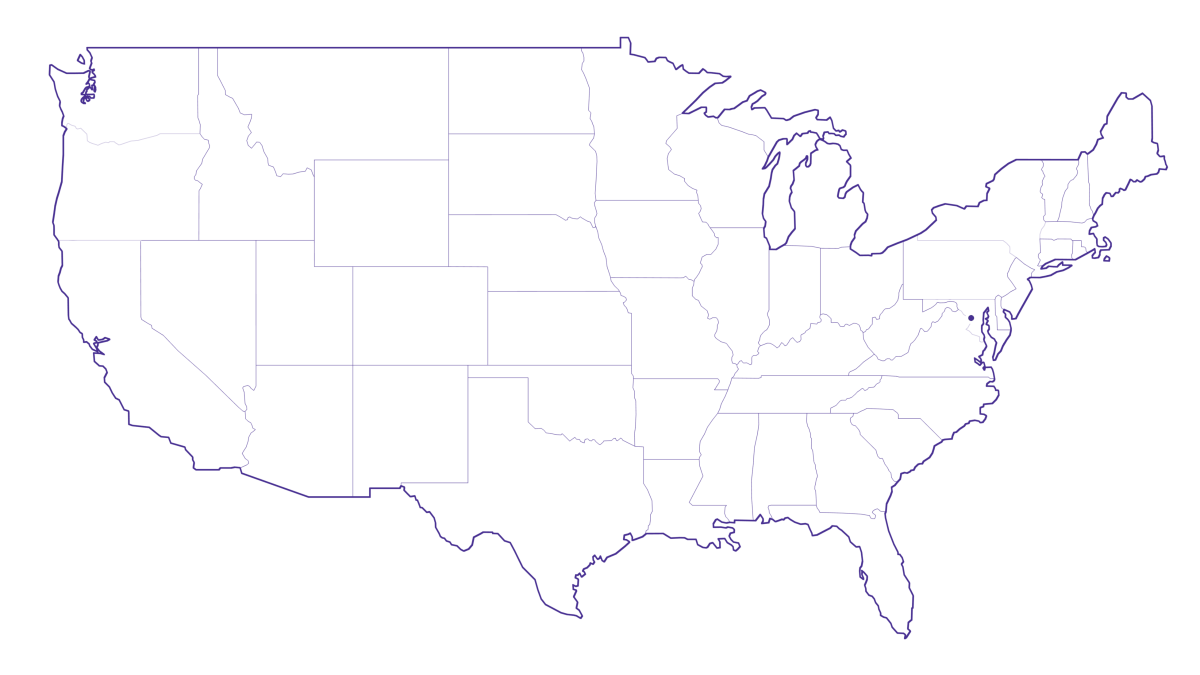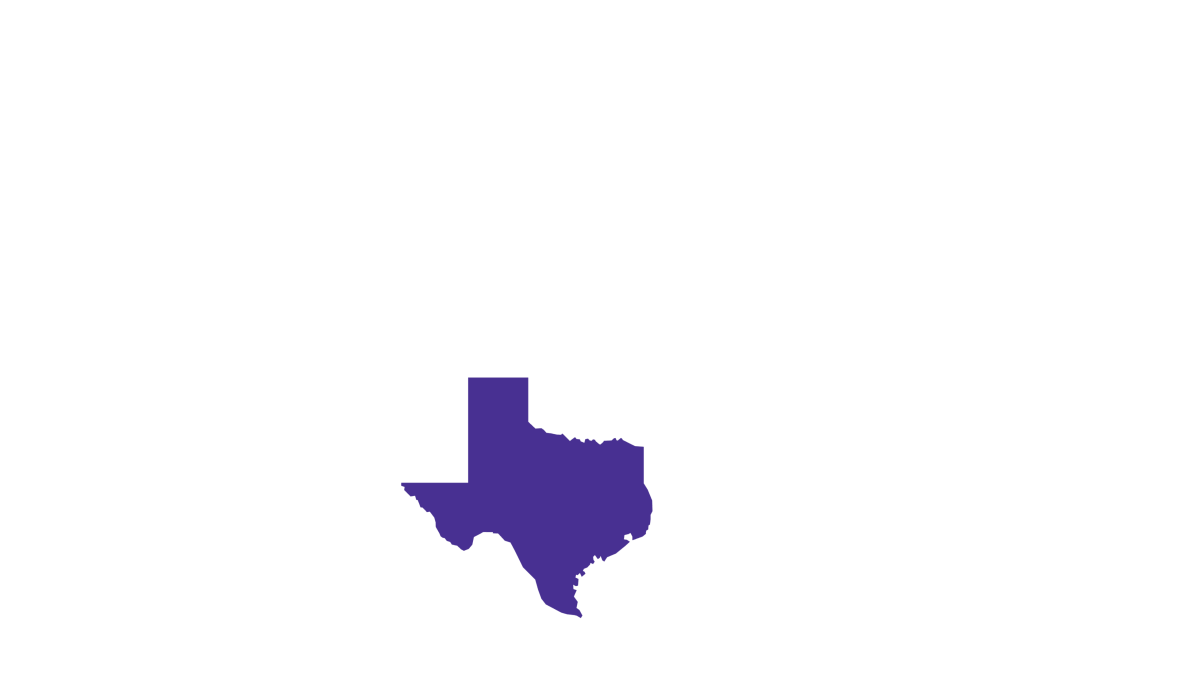Do I need 100 Mbps internet? (and what is it good for?)

Knowing the differences between speeds is essential if you’re considering internet plans. In this article, we’ll outline what 100 Mbps is and whether or not it will be fast enough for your household.
What you'll learn:
- What is 100 Mbps internet?
- Is 100 Mbps fast enough?
- 100 Mbps vs. 5G home internet
- Is 100 Mbps worth it?
- How much speed do I really need?
- 100 Mbps internet equipment requirements
- How do I get 100 Mbps internet with Astound?
- Bottomline: Is 100 Mbps good enough?
- Frequently asked questions
- Looking for more topics?
Switch & save
Astound is the #1 cable ISP
Stream live content, work, surf, game and connect to multiple devices with speeds up to 1500* Mbps through our ultra‑reliable fiber‑powered network.*

What is 100 Mbps internet?
100 Mbps is an internet connection that transfers 100 megabits of data per second. This is an adequate speed if you only have one or two users with a few devices and are looking for the most affordable internet speed possible.
With a 100 Mbps connection, one or two users will be able to:
- Browse the internet.
- Stream videos.
- Play some online games.
- Download files.
- Participate in video conferences or virtual meetings.
- Work and learn remotely.
Your actual speed experience depends on the number of users and devices connected, the type of activities, any possible network congestion and the type of WiFi connection.
Is 100 Mbps fast enough?
100 Mbps will suffice for light internet usage for a couple of users and devices. Here’s an in-depth look at how 100 Mbps handles the following internet activities:
Gaming internet
Get the total gaming solution
How you game is up to you. One thing is clear–you need fast and ultra-reliable internet. Get fiber‑powered internet that delivers Gig speeds no matter what high-bandwidth activity you choose.

For gaming
Most online games demand internet speeds ranging from 5 Mbps to 20 Mbps. With 100 Mbps, users can play some multiplayer games across devices.
A 100 Mbps connection will offer:
- Gaming sessions on one or two devices.
- Downloads of game files and updates.
Other factors influencing gaming performance include internet bandwidth, network congestion and distance from game servers.
Consider higher speed plans if you’re a competitive player or stream 4K and 8K gaming content to audiences. Higher speeds provide more bandwidth, improving the online experience for you and your audience.
You’ll also want to consider a higher speed plan if you have more than one person in your household playing simultaneously.
If you already have a high-speed connection but want to get the most out of your internet, look into our dedicated gaming router to optimize your internet speeds.
For streaming
A 100 Mbps speed will work for streaming HD and 4K content. Streaming platforms like Netflix require 5 Mbps for HD videos and 15 Mbps for 4K videos.
A 100 Mbps internet connection will allow you and another person in your home to stream:
- HD and 4K video content.
- High-quality audio from music platforms like Spotify and Apple Music.
- Social media content.
- Gaming content from platforms like Twitch or YouTube.
Keep in mind that the quality of your streams will depend on the number of people and devices connected to your home network. Consider higher tiers if you’re concerned about your internet bandwidth.
Unsure about the speed your household needs? Find your speed here.
WiFi that just works!
WiFi plans for any home
Tiny, large or somewhere in between; find WiFi coverage to fit any space. Blanket your entire home with a fast and ultra‑reliable connection.
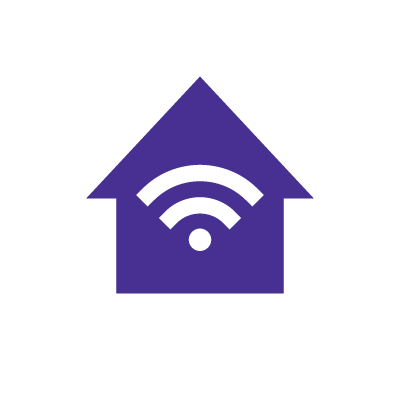
For working from home
100 Mbps is adequate for video conferencing, file transfers and accessing cloud services.
With 100 Mbps at home, one or two users will be able to:
-
- Connect to video calls and virtual meetings via Zoom, Teams, or Slack.
- Manage email and access the internet across multiple devices.
- Download multimedia content from cloud-based services.
- Access cloud-based applications, like Microsoft 365 and Google Workspace.
- Juggle online tasks like file downloading or streaming across multiple devices.
With a 100 Mbps connection, however, multiple users and devices can strain your speeds. If you’re unsure if 100 Mbps is right for you, consider our 300 Mbps, 600 Mbps, or 1500 Mbps higher speed plans.
For online learning
100 Mbps can facilitate remote learning activities for one or two students in your household. Accessing online learning platforms like Canvas requires a minimum speed of 512 kbps.
With 100 Mbps, a couple of students in your home can:
- Participate in real-time lectures and online discussions.
- Engage in multiple online learning activities.
- Access and download learning materials.
- Upload and submit text- or multimedia-based assignments.
- Access interactive learning features, like online labs.
Remember that other users working from home or engaging in online activities may stress your bandwidth, compromising your internet quality. Check out our higher-speed plans to accommodate your requirements.
For hosting events
100 Mbps is enough to host a small event with a small number of attendees, like sports-watching parties, webinars or virtual workshops.
With a 100 Mbps connection for small events, you’ll be able to:
- Stream virtual event platforms like Zoom, Hopin or Twitch.
- Stream on sports or other VOD apps like NBA TV, NFL TV or MLB TV.
When deciding to host an in-person or online event, determine how many concurrent users, platforms and types of events you might host using your home network.
Are you concerned about bandwidth for your online or in-person events? Look into higher-speed internet options from your ISP.

Mesh WiFi with
eero Secure
Enhanced Whole Home WiFi uses multiple routers (or eeros®) to boost range, speed, and stability, while eero Secure, included at no extra cost, offers parental controls, ad blocking, and internet backup for constant connectivity.
For smart devices and IoT devices at home
Smart and IoT devices like cameras, voice assistants, thermostats and locks require minimum speeds of 25 Mbps. 100 Mbps is sufficient for a few smart and IoT devices in a household.
If you stay within your speed limits, your smart and IoT devices will:
- Integrate to create a smart environment within the home.
- Execute commands and receive real-time updates.
Smart devices constantly access your internet bandwidth, as they are always on. If you find your smart devices and personal devices straining your bandwidth, look into a higher speed to keep your devices online.
For your apartment
In most cases, apartments are smaller, with fewer occupants and fewer personal or smart devices. A 100 Mbps connection will cover the needs of a one or two person household in an apartment as long as the activities performed are not bandwidth-intensive.
Learn more: How to set up your internet and WiFi in a new apartment.
However, consider a higher-speed package if you are a competitive online gamer, stream 8K content, or if there is a surge in users and devices in your apartment.
For a large home
Whether a 100 Mbps connection is enough for a large home depends on the number of people, devices connected and internet habits.
Larger homes typically house more people with personal and smart home devices. An increase in users or devices, such as guests or visitors, will strain your internet speed and bandwidth. We recommend speeds of no less than 300 Mbps for a large home.
Learn more: How to set up your internet in a new home
Moreover, larger homes also require broader internet coverage. Large houses may contain dead zones with poor internet coverage. Consider introducing mesh WiFi routers into your home. They increase WiFi coverage and are flexible, modular and moveable. You simply place them in the area you want your WiFi to extend to.
The technology gap
You deserve better internet
5G Home Internet Fixed Wireless Access uses radio waves which are impacted by obstacles like buildings and trees, resulting in reduced reliability.
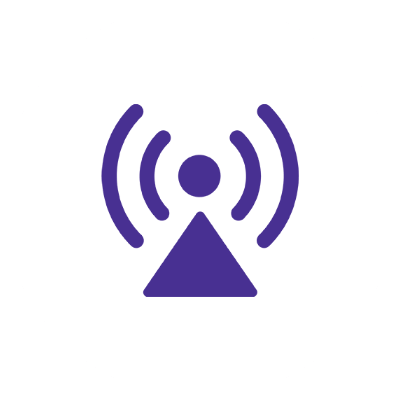
100 Mbps vs. 5G home internet
A 100 Mbps broadband connection is a traditional fiber or cable-wired connection that offers comprehensive coverage and reliability.
Wired connections like fiber provide consistent performance because they are less vulnerable to signal interference than wireless connections.
The cost and value of 100 Mbps can vary depending on your ISP, but most services usually bundle internet, mobile plans and TV.
5G home internet is a wireless service that uses 5G technology. 5G signals are airwaves, which introduce latency. As such, data transmission rates are slower than wired connections.
Latency affects all internet activities, like online gaming, streaming and video calling.
5G is also affected by factors such as:
- Long distances between devices and 5G cell towers.
- Physical obstacles between devices and cell towers.
- User congestion.
- Unfavorable weather events.
- Limitations in rural areas.
In addition, while wired connection infrastructure exists throughout most of the country, 5G service zones are generally limited to areas where the infrastructure has been built—mainly urban cities.
Check for service
Get internet service that delights
Astound is ranked among the best for overall satisfaction*. When it comes to download speed and quality, Astound more than delivers.

Is 100 Mbps worth it?
100 Mbps is a fast, reliable broadband connection sufficient for a household with one or two individuals accessing the internet simultaneously. It may be an adequate choice if your biggest focus is on budget.
With a 100 Mbps connection, you will be able to:
- Browse the internet across a few
- Stream HD and 4K videos.
- Play some online games.
- Download and upload files to cloud-based services.
- Participate in video conferences or virtual meetings.
- Participate in remote learning with multiple users.
- Upload content to social media.
- Host in-person or virtual events for a small group.
- Improve home automation with a few connected smart devices.
However, whether or not your household will find value in 100 Mbps depends on the number of connected users, devices and your online activities. If an increase in the number of users and appliances in your household causes a disruption in your service, consider switching to higher-speed tiers to accommodate your needs.
When should you consider upgrading to a faster internet speed?
It may be time to upgrade to a faster internet speed if you experience any of these issues:
- Network congestion
- An increase in users in your household.
- An increase in devices in your home.
- Delayed response times while gaming online.
- Slow upload or download speeds.
- Video connectivity issues when streaming.
- Poor video or audio call quality.
Before deciding to switch plans, evaluate your internet requirements. You can run routine speed tests to see if your provider delivers the advertised speeds.
Consider optimizing your WiFi to get the fastest speeds possible. By optimizing your WiFi, you will increase your network’s performance, reduce channel interference and balance your device load.
Will my devices be capable of receiving 100 Mbps?
Most modern devices that meet the latest WiFi standards can handle 100 Mbps. Older devices and outdated software may prevent you from connecting to a 100 Mbps internet connection.
Find your speed
What speed do you need?
Maybe you just need the essentials—or maybe you need to unleash the ultimate internet speed. Explore your options to get the best experience for every device in your home.
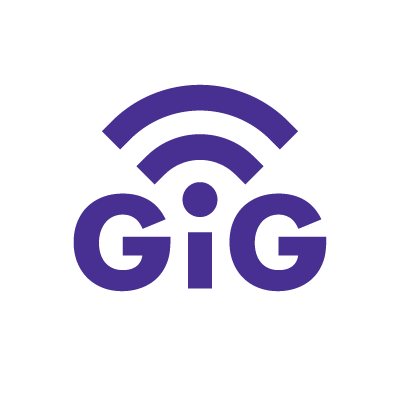
How much speed do I really need?
To determine your internet speed connection needs, ask yourself the following questions to understand your usage patterns:
- How many people in my household will use the internet simultaneously? Consider how many people will be using the internet. Each user adds to the demand for bandwidth.
- What are the online access needs for my household? Identify the primary online activities people in your home typically perform, such as streaming, gaming, video conferencing, browsing and uploading photos and videos to social media.
- Which devices will be connected? Determine the number and types of devices like smartphones, laptops, smart TVs and gaming consoles that will be in use.
- Will anyone be working remotely or learning online? If anyone in your household works from home or takes classes online, consider the bandwidth required for video conferencing, file sharing and any other work-related tasks.
- Will anyone stream HD or 4K videos? If you frequently stream high-quality videos, a faster internet connection is essential to ensure smooth playback without buffering.
- Is gaming a priority for anyone? Gamers may require faster speeds for better gaming performance, with more immediate download and upload speeds and reduced latency.
- Does the house have smart home devices? IoT devices, like smart thermostats or security systems, will impact your accessible bandwidth.
- Are large files frequently downloaded or uploaded? Consider the need for faster download and upload speeds if you work with large files or use cloud services.
- Am I satisfied with my current internet speeds? Identify any pain points or limitations you may have.
- What are my future internet needs? Do you anticipate potential changes in your internet use? Will you be adding more devices or engaging in more data-intensive activities?
- What internet plans are available to me now? Check with local internet service providers to see what plans and speeds are available at your location.
Balance performance, cost and usage to choose the best plan for your household.

eero Plus
eero Plus protects your family online with a password manager to safely create, store and share passwords, virus and malware protection and a VPN that lets you browse the web safely and securely.
100 Mbps internet equipment requirements
You’ll need the following equipment to optimize your 100 Mbps fiber connection:
- Fiberor DOCSIS compatible modem: A fiber or DOCSIS modem is required to convert optical signals from a fiber/COAX line into electrical signals so your router and devices can understand each other. Astound’s installation process includes a modem. But you can supply your own modem if it meets our compatibility requirements.
- Router: A router supporting high-speed connections is necessary to distribute the internet signal to your wired and wireless devices. You want to look for a router supporting Ethernet ports and modern WiFi standards like 802.11ac or 802.11ax (WiFi 6).
How do I get 100 Mbps internet with Astound?
Check for internet service availability in your area.
Bottomline: Is 100 Mbps good enough?
100 Mbps is a reliable internet speed for one or two users streaming HD and 4K videos, gaming online and transferring files. Surges in users and devices, however, may affect your speeds.
If you are a serious online gamer or live in a household with many people and multiple devices, higher speeds, like 300 Mbps, 600 Mbps, 1200 Mbps, and 1500 Mbps, might be necessary to keep your household connected.
Build your plan
Your perfect plan is just a click away
Get the speeds, WiFi, mobile and TV plans you need all at an affordable price. Bundle your services with Astound and see how much you can save.
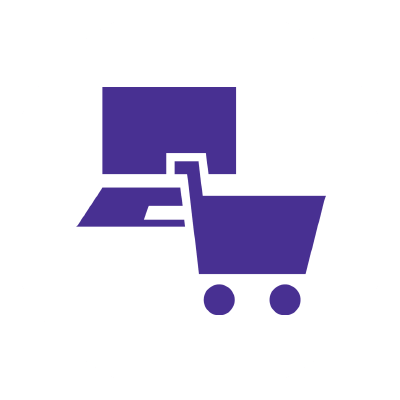
Frequently asked questions
Does Astound offer 100 Mbps internet plans?
Yes, Astound offers 100 Mbps internet plans.
Is 100 Mbps slow?
100 Mbps is sufficient to handle most online activities. However, your internet may become congested quickly if multiple users and devices compete for bandwidth.
Create the perfect bundle
Get the speed, WiFi, mobile and TV that’s just right for you.
*Internet speeds may vary & are not guaranteed. Certain equipment may be required to reach advertised speeds. DOCSIS 3.1 modem with 2.5GE physical LAN port is required for 1 Gigabit speeds and higher. See astound.com/yourspeed for why speeds may vary. To view Astound’s FCC Network Management Disclosure see astound.com/policies-disclaimers. Limited time offer, subject to change without notice. Advertised promotional price valid for duration of the stated promotional period from time of service activation. Regular rates apply after promotional period ends. Equipment not included and is extra. Modem required for Internet service. Enhanced Wi-Fi or Whole Home Wi-Fi (eero) not included and is add’l. Offer includes a monthly discount for enrollment in both automatic payments (autopay) & paperless billing (e-bill). Discount of $10 applies with automated bank account deduction or a discount of $5 applies with automated credit/debit card payment. Valid email address required. Must complete enrollment in autopay and e-bill within 30-days of placing the order. Without enrollment, the discount does not apply. Discount appears on bill within 3 bill cycles after enrolling. If either autopay or e-bill is canceled, services are changed, or the account is not in good standing, then the monthly discount will be discontinued. Offer valid only for new residential Astound customers or previous customers with an account in good standing who have not had Astound service within the last 60 days. Any add’l services, equipment, premium channels & other tiers of service are subject to an add’l charge & regular increases. A one-time activation fee of $14.99 (in addition to any installation fees) will be charged & is subject to change. Add’l fees apply for taxes & surcharges, and are subject to change. WA RESIDENTS: unless otherwise specified, price does not include a 2% Regulatory Administration Fee. For details about taxes, fees & surcharges visit astound.com/fees. No early termination fees apply in the event service is terminated in advance of the promotional end date. Customer is responsible for any accrued service charges in the event service is canceled. Subject to credit check. Not all services & speeds are available in all areas. A multi-product discount may be available to qualifying addresses with a subscription to mobile, TV, and 600 Mbps Internet or higher. Discounts will be reflected in your order cart at time of purchase, if available. Other restrictions may apply. All services are governed by the Astound Customer Terms & Conditions that can be found at astound.com/policies-disclaimers. © 2025 Radiate HoldCo, LLC d/b/a Astound Broadband. All rights reserved.
While we have made every attempt to ensure that the information contained in this site has been obtained from reliable sources, Astound is not responsible for any errors or omissions, or for the results obtained from the use of this information. All information in this site is provided “as is”, with no guarantee of completeness, accuracy, timeliness and without warranty of any kind, express or implied, including, but not limited to warranties of performance, merchantability and fitness for a particular purpose. Certain links in this site connect to other websites maintained by third parties over whom Astound has no control. Astound makes no representations as to the accuracy or any other aspect of information contained in other websites.
eero Plus is available for an additional $9.99/month and requires subscription to whole home WiFi powered by eero.


